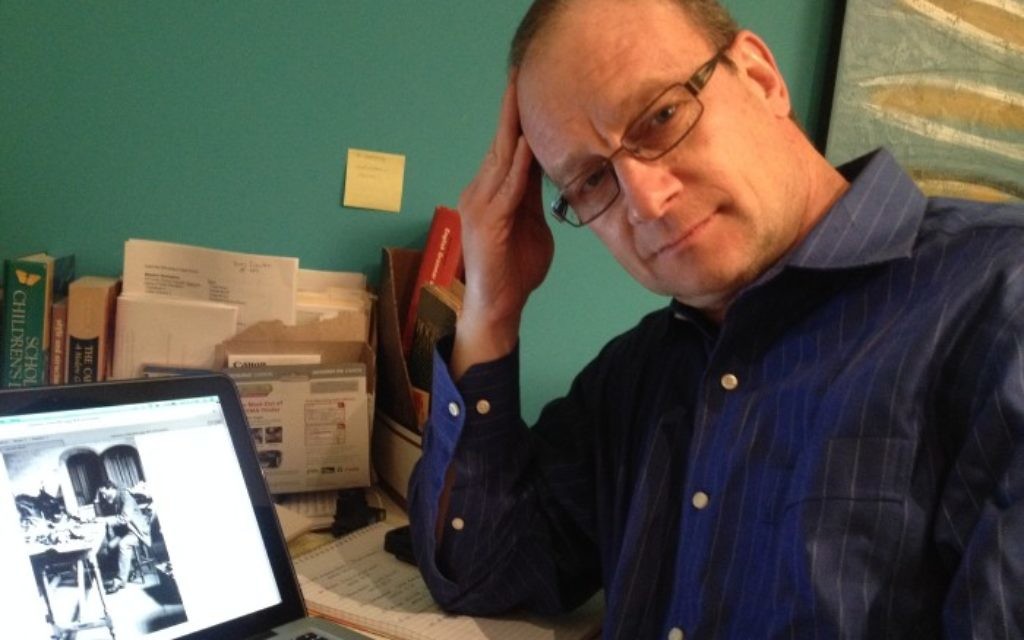Take Care When You Point That Finger
A slippery slope can be hard to recognize until you’re already sliding downhill.
John F. Kennedy warned during his ultimately successful 1960 presidential campaign that America was edging close to such peril on religious grounds.
Protestant leaders suggested that because the Democratic senator from Massachusetts was Catholic, he might be beholden to the pope in Rome and called on him to repudiate church teachings.
Get The AJT Newsletter by email and never miss our top stories Free Sign Up
In a forceful rebuke, delivered on Sept. 12, 1960, before the Houston Ministerial Association, Kennedy said, “I believe in an America where the separation of church and state is absolute.”
Watch the address. Consider his words in light of today’s political climate.
“For while this year it may be a Catholic against whom the finger of suspicion is pointed, in other years it has been, and may someday be again, a Jew or a Quaker or a Unitarian or a Baptist. Today I may be the victim, but tomorrow it may be you — until the whole fabric of our harmonious society is ripped at a time of great national peril,” Kennedy warned.
Kennedy recognized the slippery slope.
Since 9/11, that finger of suspicion has been pointed at American Muslims.
That no Muslim is seeking a major party’s 2016 presidential nomination has not stopped Republican hopeful Ben Carson from pandering to that suspicion by declaring Islam “antithetical to Americanism” and saying that a Muslim should not lead the country.
Carson later said he could support a Muslim who would swear to put the Constitution before religion and disavow Sharia (a religious legal code based on the Koran and the words of the Prophet Mohammed).
Article 6, Paragraph 2 of the Constitution, known as the “Supremacy Clause,” states that the Constitution “shall be the supreme law of the land.”
Article 6, Paragraph 3 states that “no religious test shall ever be required as a qualification to any office or public trust under the United States.”
Citing these provisions, Arsalan Iftikhar, a lawyer and senior editor of The Islamic Monthly, suggested that Carson should retroactively fail eighth-grade social studies.
In a Gallup Poll conducted in June, 91 percent of respondents said that if the presidential nominee of their party was a Jew, they would vote for that person. Likewise, 60 percent would vote for a Muslim and 58 percent for an atheist.
Someday we may have a president who attends a synagogue.
Someday we may have a president who attends a mosque.
When a Jew, a Muslim or someone of another non-Christian faith — or someone with no religious affiliation at all — is elected president, that person will swear an oath that includes the words “and will, to the best of my ability, preserve, protect, and defend the Constitution of the United States.”
Decades ago, alleged fealty to the pope was at the root of prejudice against Catholics and suggestions that they were insufficiently loyal to American values.
If you suggest that an American citizen who is Muslim might be less committed to the nation’s well-being than an American citizen of another faith, you are treading near that slippery slope.
Jewish candidates should not face suspicions about the role religion plays in their lives — such as whether Judaism creates problematic loyalties divided between the United States and Israel — any more than Kennedy should have as a Catholic.
American Jews — whose history is replete with suffering from prejudice in the workplace, in education and in public accommodations — must be willing to publicly reject any litmus test based on religion.
Kennedy’s warning is as valid in 2015 as it was in 1960.





comments